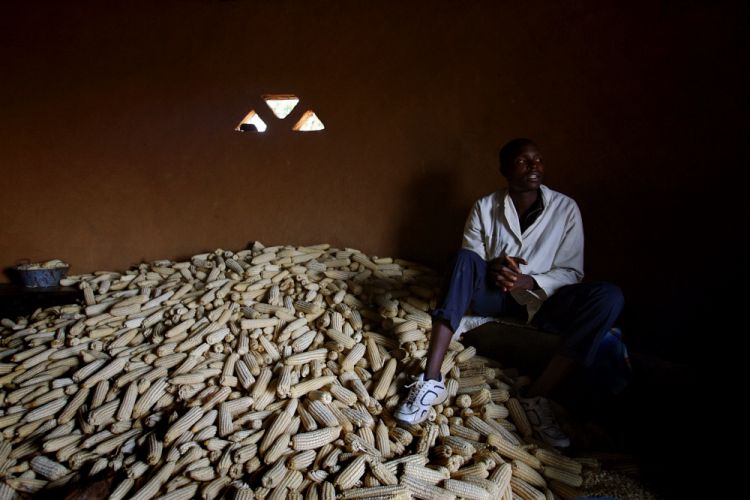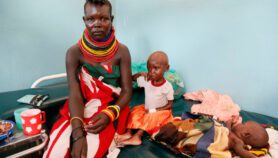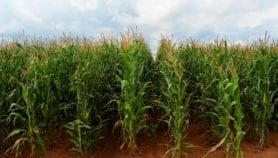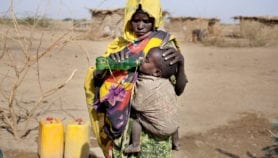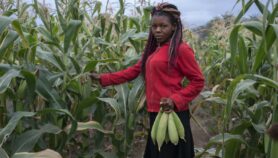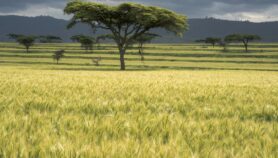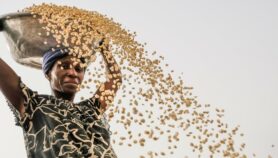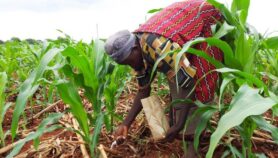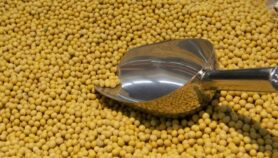Send to a friend
The details you provide on this page will not be used to send unsolicited email, and will not be sold to a 3rd party. See privacy policy.
[NAIROBI] Food security in Africa could be met by investing in research and innovations as one of the pillars for smallholder farmers production, according to experts.
This was observed in Kenya last month (30 June) when Canada’s International Development Research Centre (IDRC) and Australian Centre for International Agricultural Research (ACIAR) signed a 10-year CAD$25 million (about US$20 million) investment partnership to support greater food security and improve nutrition in Eastern and Southern Africa.
The partnership was signed by IDRC President, Jean Lebel, and ACIAR CEO, Andrew Campbell, during the launch of second phase of the Cultivate Africa’s Future Fund (CultiAF II).
“Despite women being the main agricultural workers, they are not the main agricultural decision makers.”
Mellissa Wood, ACIAR
CultiAF is a joint IDRC-ACIAR undertaking for transforming agriculture in Africa to improve the livelihoods of millions of smallholder producers and consumers.
The fund, first launched in 2013, had a first phase of CAD$15 million (about US$ 12) investment to support eight innovative and results-driven research projects in Kenya, Malawi, Zambia, Zimbabwe and Uganda.
Mellissa Wood, general manager, global program at ACIAR, says science has built a significant platform on which yields have grown, and productivity gains regularly delivered.
She says that building on successes of phase one, they will be extending their partnership with the program designed to be even more ambitious and innovative.
The second phase, according to her, has three elements: “a smaller second phase of CultiAF phase one committed to consolidating a high value set of innovations selected from the first phase, a new CultiAF II competitive call to support African scientists to develop innovations for climate resilient agriculture and farming systems; to support research into the complexities of the land, water and energy nexus to improve the water security, efficiency and management in African agricultural systems.”
Under this, she explains, emphasis will be on women and girls to engage and take leadership in transforming African agriculture as research leaders, entrepreneurs, producers and consumers.
“Rather than assuming that they [will] be incorporated in the benefits of innovations, we are going to make special attention to ensure they are. Despite women being the main agricultural workers, they are not the main agricultural decision makers…are disadvantaged in a number of ways,” she tells SciDev.Net.
Also, national agricultural systems, including universities and institutes, will be the main recipients and principal researchers, with international agricultural centers and organisations as third party players in it.
According to Campbell, they will be figuring better ways to do things. Some of the research can be scientific; some a farmer trying doing different things using different devices to decide what works best.
“We are working with smallholders and researchers to ensure that whatever we do is highly relevant in the smallholder context, that it makes a lot of relevance,” he says.
The second phase, according to Lebel, will focus on innovations that reduce post-harvest loss, improve nutrition, and promote the sustainable and efficient use of water for agriculture.“The project focuses mainly on women, girls and children as they are the most vulnerable when it comes to food security while also building livelihoods,” says Lebel.
CultiAF II aims to boost the food security in Burundi, Ethiopia, Kenya, Malawi, Mozambique, Rwanda, Uganda, Tanzania, Zambia and Zimbabwe by backing applied research in the agricultural sector.
Bethwel Omolo, senior assistant director, Kenya Fisheries Services, says focusing on small-scale farmers is critical since they are the majority and play a key role in agricultural production.
Omolo adds that small innovations can have large impacts both locally and international.
“We want science and innovations that transform people’s lives, especially smallholders so that they can have what they may not have achieved without these,” says Omolo.
This piece was produced by SciDev.Net’s Sub-Saharan Africa English desk.


